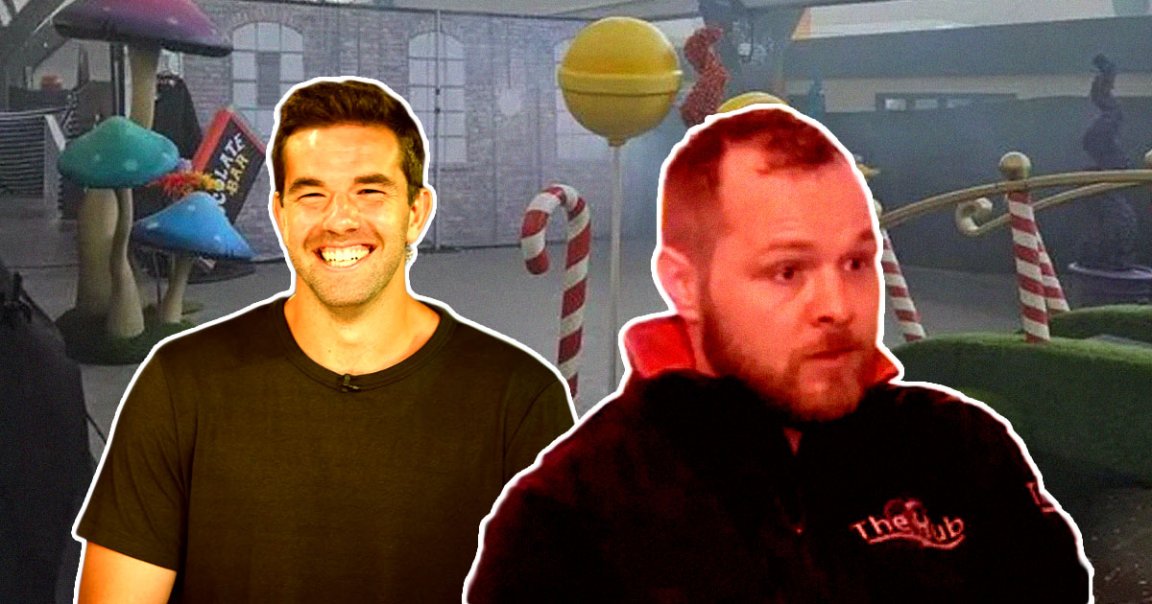
Stop us if you’ve heard this one before. A guy named Billy uses slick marketing and buzzy new tech to sell tickets to a hype-fueled event. But when attendees get there, it turns out it was all a mirage — a dismal gathering in a filthy environment, complete with substandard food. The world watches in horror and fascination as the whole mess unfolds on social media.
Strikingly, it’s a description that applies just as well to 2017’s infamous Fyre Fest, in which revelers expecting a glitzy music festival ended up stranded in FEMA-like conditions, as to this week’s “Willy’s Chocolate Experience,” an “immersive” event based on Willy Wonka that was drummed up with AI-generated text and video, but which was so disappointing in reality that children burst into tears and their parents called the police.
Incredibly, they were even both run by men named Billy: Fyre Fest was the brainchild of Billy McFarland, and the Wonka Experience the creation of a guy named Billy Coull.
The internet was quick to connect the two events.
“Need a Fyre Fest-style documentary about the immersive Willy Wonka exhibit in Glasgow so badly,” one X-formerly-Twitter user wrote.
“They tried to Fyre Fest Willy Wonka,” another posted.
The more you think about it, the deeper the similarities run. Fyre Fest was a spinoff of McFarland’s Uber-like app for booking celebrity talent, and he leveraged the then-buzzy notion of paying influencers to promote it on social media. And as he would later admit to UK tabloid The Daily Mail, Coull made extensive use of AI — the hottest tech gold rush since social media — to dream up a “celebration of chocolate in all its delightful forms.”
But when attendees got to Fyre Fest, they were greeted with a disaster site and inedible food. And at the Wonka event, parents soon realized that the slick AI vision hadn’t translated into reality either, with a few dingy props and depressed-looking actors serving small portions of candy and lemonade in a dirty warehouse.
Coull seems to have a history with AI. He’s self-published a whopping 17 books on Amazon that were most likely generated by AI as well. In his since-deleted Amazon biography, he described himself as an “enigmatic wordsmith,” who “crafts narratives that blur the lines between reality and fiction.”
As Rolling Stone reports, following this past weekend’s disaster, he’s now scrubbed many of his social media accounts, including a YouTube and LinkedIn profile where he presented himself as a business-savvy life coach.
It’s certainly reminiscent of McFarland, a college dropout and son of two real estate developers with his own knack for conjuring up what sounded like a great time, at least until reality hit.
In short, AI feels like the new champion of internet scams, eclipsing the allure of apps and influencers.
You have to wonder whether we learned any lessons from McFarland’s ruse. Considering that he’s already sold 100 presale tickets to an event called “Fyre Fest II” — despite not having announced a lineup of musicians, a date, or even a location — that seems unlikely.
Sure, videos of crying children certainly don’t evoke the same schadenfreude that footage of wealthy party kids trudging past piles of trash did in 2017.
But what unites their experience are two con men, who each successfully used the buzzy marketing tech of the day to sell a tantalizing promise they knew full well they couldn’t deliver.
More on the Willy Wonka experience: Police Called After AI-Generated “Willy Wonka Experience” Is a Sad Mess in Real Life